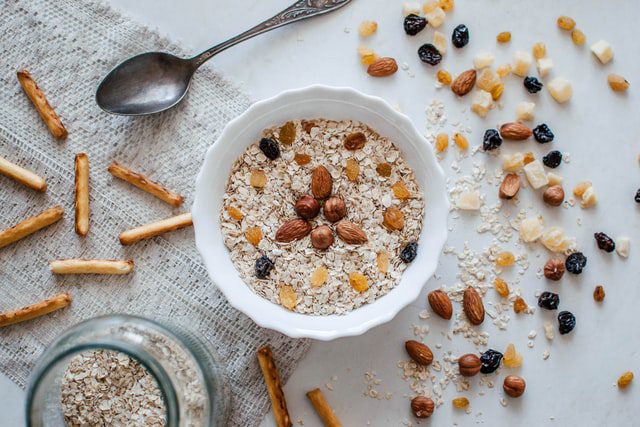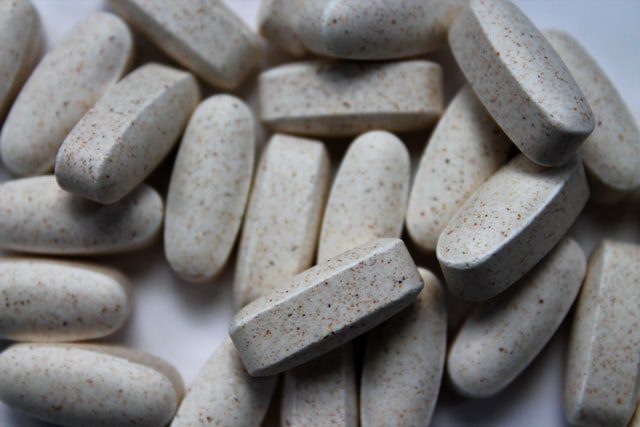
How Processed Foods Can Affect Your Health
LAST UPDATED: November 10, 2022
Processed foods are everywhere. From grocery stores to fast-food restaurants, it’s hard to avoid them. These convenient foods may seem very handy but they can have a major effect on your health. They often contain a high amount of sugar, salt and preservatives, and these substances can have an adverse effect on your health by increasing your risk for obesity, diabetes and heart disease. Processed foods are also low in vital nutrients such as fibre, which can lead to constipation or other digestive problems. In addition to these risks, processed food is typically made from genetically modified organisms (GMOs) that could increase the likelihood of cancerous tumours forming in the body.
In this blog post, we will provide some nutrition tips on which foods to avoid, along with healthier substitutes, how you can easily define processed foods from non-processed foods and why vitamins are still necessary even when you follow a nutrient-dense diet.

Foods That Have a Negative Impact
Food processing is the transformation of agricultural products into food, or of one form of food into other forms. Processed foods are easy to grab and go, and often cost less than healthier options. They are also typically frozen, canned, and pasteurized, meaning that most foods sold in the supermarket would be defined as “processed” to some measure.
It is no secret that high-fat, high-sugar, and low nutrient content of processed foods have a negative impact on health. Processed foods are higher in calories than whole food alternatives, making them a contributor to obesity. Ultra-processed foods with high contents of saturated fats, added sugar, and sodium has become markers of poor diet quality due to their effect on heart disease, obesity, and high blood pressure.
A food item is considered “highly processed” if it goes beyond the incorporation of salt, sweeteners and fat to include artificial colours/flavours or preservatives that can increase shelf stability, preserve texture and make foods more palatable.
In order to get healthier and maintain a healthy weight, you should reduce your consumption of processed foods, as excessive amounts of animal products can lead to chronic disease which increases more serious health issues in the long term.
The food industry uses ultra-high processed products to increase overall consumption and drive up revenue, despite these foods being low in fibre and nutrients. This creates a toxic cycle where most people feel fatigued, headaches, anxiety, or other uncomfortable symptoms, as a result of the poor quality of food they’re eating.
Some processed foods include cereal, certain cheeses, milk, bread, cookies, bacon, granola bars, flavoured nuts, microwave popcorn, dried fruit, potato chips, sugary drinks, cookies, and luncheon meats.
So, before you commit to any of these specific foods, understand that it is not always about the calories but about which ingredients and chemicals are beneficial to your body.

The Healthier Choices
It’s important to know you can’t control what ingredients go into food to make it ‘processed,’ and you can only control what foods you purchase. Unprocessed foods are defined as the natural edible food parts of plants and animals. The World Health Organization recommends vegetables, beans and nuts, and seeds and fruits as healthy foods. Grinding, refrigeration, fermentation, freezing, and vacuum-packaging allow the food to be stored for longer. I
If it has a nutritional label, there’s a good chance it’s not best for you. Whole foods are your best bet in making sure you are getting the right nutrients from your food.
Foods that contain Vitamin B12
For breakfast, try oatmeal with milk or yogurt. Some other good sources of B12 include eggs, chicken breast, and tuna salad sandwiches on whole-wheat bread. Tuna salad is an excellent choice because it contains both protein and B12 so it will keep your energy levels high throughout the day. You could also opt for a peanut butter sandwich if you like protein paired with carbohydrates because this combination provides long-lasting energy to help power through your workday without crashing.
Foods that contain Vitamin C
Vitamin C is important for the immune system. It helps to produce collagen, an important protein in connective tissue. Vitamin C can also help protect cells from free radicals that are harmful to your body’s tissues and organs including the brain, eye, heart and gums. From orange juice to strawberries, there are many delicious and nutritious fruits and vegetables that can provide an easy way to meet your daily needs. The best foods that are high in Vitamin C are citrus fruits like grapefruit which have around 90mg per serving. Other foods that are incredibly rich in Vitamin C are broccoli, brussels sprouts, cauliflower, green and red peppers, spinach, cabbage, turnip greens, and other leafy greens, as well as sweet and white potatoes.
Foods that contain Vitamin D
The sun is a great source of Vitamin D, but it is not the only one. The best sources for Vitamin D are from fortified dairy products such as milk, cheese, yogurt and ice cream. Other great options include oily fish like salmon, tuna or herring because they contain Omega-3s that help produce natural oils in your skin. You can also try eggs with the yolk because they contain choline, which helps form neuron connections in developing brains. Lastly, don’t forget about mushrooms, as they are a great source of Vitamin D and an excellent choice for vegans and vegetarians.
Foods that contain Iron
Iron-rich foods are essential for healthy blood. If you’re not getting enough iron, your body will get more from other places like the liver, which can lead to serious consequences such as anemia. Iron-rich foods include red meat, pork and poultry, seafood, beans, dark green leafy vegetables, such as spinach, dried fruit, such as raisins and apricots, plus fortified cereals, bread and pasta.
Nutrigene Foods
Nourishing your body with the right foods can have positive effects on your health. Some of these include strengthening bones, boosting immunity, and reducing the risks of chronic illness. Nutrigene food is an emerging trend in the world of nutrition that focuses on getting all-natural sources for vitamins and minerals to create a more balanced diet. There are many benefits to this type of diet including increased energy levels, improved skin quality, reduced risk of cardiovascular disease, lower blood pressure, decreased anxiety levels and lower cholesterol levels among other things. Examples of Nutrigene foods include organic and colourful foods, whole grains, unrefined olive oil, bananas, yogurt, berries, spinach and salmon. Essentially, high-quality foods composed of healthy fat that contain high levels of Vitamins and omega-3.

How to Easily Tell Process Foods Apart from Non-Processed
Processed food is any food that’s altered during preparation to make it more convenient.
Non-processed foods are in their naturally occurring form and look as close as you’d find them in nature. Typically, the more ingredients on the list, the more processed a food is.
Processed food includes dehydrated, canned, frozen, or packaged goods. They are typically high in sugar and salt to make them more flavorful. Processed foods are found throughout the grocery store but are most often found near the checkout lanes because they’re easy to grab for shoppers on the go. Some processed foods contain artificial colours or flavours which can be harmful to your health if consumed excessively.
A good way to tell processed foods from non-processed foods is through these easy steps:
1. Read the label.
The longer the ingredient list, the more processed a food is. If you cannot pronounce the ingredients as easily, then the likelihood of the food being processed is higher. Remember, the healthiest foods typically don’t require a nutrition facts label.
2. Check the outside aisles at the supermarket.
Ready-made foods are typically found at the center aisles of the markets. When in doubt, the produce and dairy aisles are the best to shop from.
3. Be mindful of your meats.
Seafood and chicken breast are minimally processed, while meats like sausage, cured meats like bacon, are much more processed.
One of the best things about clean eating is that you’ll be more likely to live a longer, healthier life. Eating healthy provides your body with the nutrients it needs for daily functioning and helps prevent chronic diseases, while also encouraging a good mood. It also helps manage weight by providing fewer calories than unhealthy food choices do. If you’re looking for an easy way to incorporate more fruits and veggies into your diet, try juicing them.

Why Personalized Vitamins are Still Necessary
As most vitamins obtained through foods are either fat-soluble or water-soluble, a part of them tends to be dissolved before they can be absorbed by the body, and therefore cannot be stored. Even people with the healthiest diets still may need to use vitamins and supplements because of certain genetic deficiencies that require very high dosages or intake of certain nutrients.
By stopping the count of calories and focusing on the vitamin and nutrient content, you can naturally become healthier since the things you’re putting in your body will do their work naturally. A diet that includes plenty of fruits, vegetables, whole grains, good protein packages, and healthful fats should provide most of the nutrients needed for good health. However, vitamins play a necessary role when nutritional requirements are not fulfilled merely through foods, and custom nutrition testing can tell you exactly how to complement your balanced diet.
Personalized vitamins are designed to address your individual needs. They help you get the right balance of nutrients for your body, based on what is missing or too high in your system. This means that you will have more energy throughout the day and maintain a healthy weight while also improving mood and mental clarity.
Your DNA speaks volumes, which Autumn can translate and tell you your exact vitamin needs. Through the science of Nutrigenomics, which studies the effects of food and food constituents on genes, how genetic variations affect the nutritional environment, and personalized nutrition testing, we can formulate the perfect personalized supplements for daily intake. Our testing is focused on your nutritional needs, as every single step of our process, from your at-home DNA test kit to the formulation of your custom vitamin and supplement packs, has been approved by a team of medical and scientific practitioners.
With Autumn as your personalized vitamins supplier, not only will you be receiving the benefits of a complete and accurate vitamin supplement, but also know your body is receiving a full circle of nutrients that will balance and improve your lifestyle.
